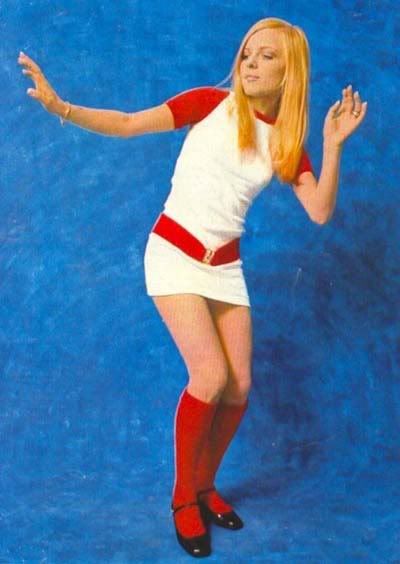
The beautiful and talented Anna Karina (born Hanne Karin Blarke Bayer on 22 September 1940) is a Danish film actress, director, Model, and screenwriter. She has appeared in many French and European films such as Alphaville, Anna, and Laughter in the Dark.
Karina has also maintained an important singing career. At the end of the 1960s, she scored a major hit with "Sous le soleil exactement" and "Roller Girl" by Serge Gainsbourg, both songs taken from the TV musical comedy Anna (1967) by the film director Pierre Koralnik in which she sings seven songs alongside Gainsbourg and Jean-Claude Brialy. She subsequently recorded an album Une histoire d'amour with Philippe Katerine, which was followed up by a concert tour. Karina has also written three novels and made several appearances on television. In 2005 she released Chansons de films, a collection of songs sung in movies.



she's gorgeous!
ReplyDeleteQuite.
ReplyDeletevery surreal
ReplyDeleteLove these vintage videos.
ReplyDeleteWow, she's a stunning woman.
ReplyDeleteBeautiful. Great blog btw.
ReplyDeletenice blog showing support
ReplyDeleteGlad to find another fan.
ReplyDeletedamn she is hot
ReplyDelete